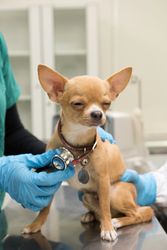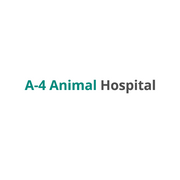
When picking out a dog to bring into the family, you may have researched sizes, energy levels, and temperaments. However, a canine’s breed can also determine their chances of getting certain health conditions—including breathing problems. The guide below looks at what kinds of dogs are most prone to these issues and when you should take them to a veterinarian for treatment.
What Breeds Have Respiratory Problems & Why?
Dogs like pugs, boxers, chihuahuas, Shih Tzus, bulldogs, and some types of terriers and spaniels are the most susceptible to respiratory problems. Their flat faces, short noses, small nostrils, collapsed larynxes, soft palates, and shrunken windpipes all contribute to narrow, blocked airways. These problems can all be exacerbated by obesity and allergies.
You may notice the way that they cough or gag frequently, breathe noisily and rapidly, and snore as they sleep. They also need to pant more than other dogs and have difficulty eating and swallowing. In warm weather, they’re more likely to struggle with exhaustion and high body temperatures. Because dogs with respiratory problems have difficulty taking in oxygen, they also tend to have heart issues.
How to Treat Respiratory Conditions in Dogs?
 Like all dogs, these breeds should see their veterinarian regularly to have their health monitored and to treat any heart conditions that may arise. These professionals can also offer owners health advice. For example, they will tell you that these dogs should not be left outside during the height of the summer. It’s also not best to take them hiking or to areas of high elevation, where the air is thinner. If their case is severe, the veterinarian may recommend surgery to open up their airways, but usually only if it’s clear that your dog’s quality of life depends on it.
Like all dogs, these breeds should see their veterinarian regularly to have their health monitored and to treat any heart conditions that may arise. These professionals can also offer owners health advice. For example, they will tell you that these dogs should not be left outside during the height of the summer. It’s also not best to take them hiking or to areas of high elevation, where the air is thinner. If their case is severe, the veterinarian may recommend surgery to open up their airways, but usually only if it’s clear that your dog’s quality of life depends on it.
If you suspect that your dog has respiratory problems, take them to the reputable veterinarians at A-4 Animal Hospital in Lincoln, NE. They also provide puppy shots, flea medicine, and any other services your dog may require. Sometimes, they’ll even treat your dog within the familiar surroundings of your home. For a full scope of their services, call (402) 475-2282 or explore their website.
About the Business
Have a question? Ask the experts!
Send your question

